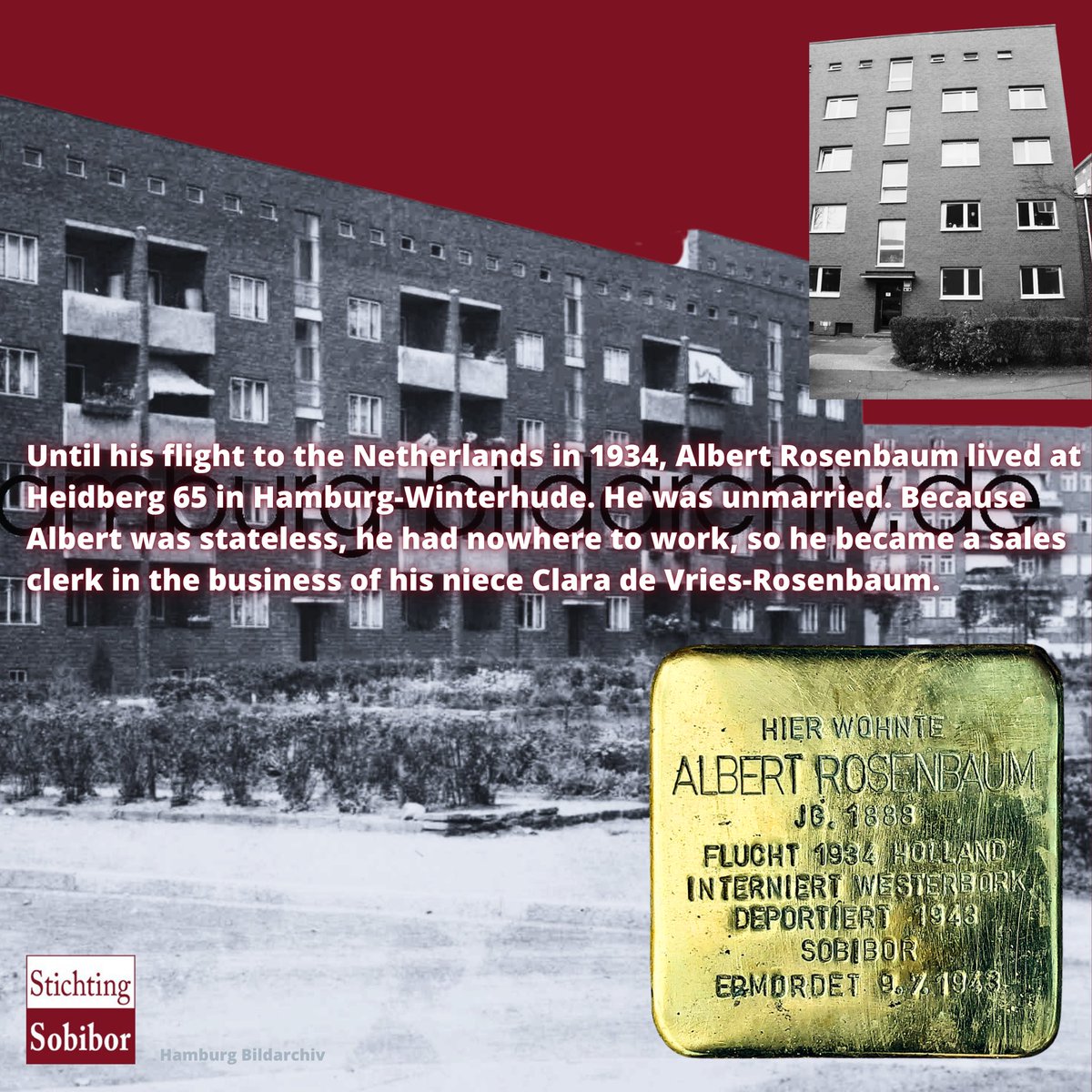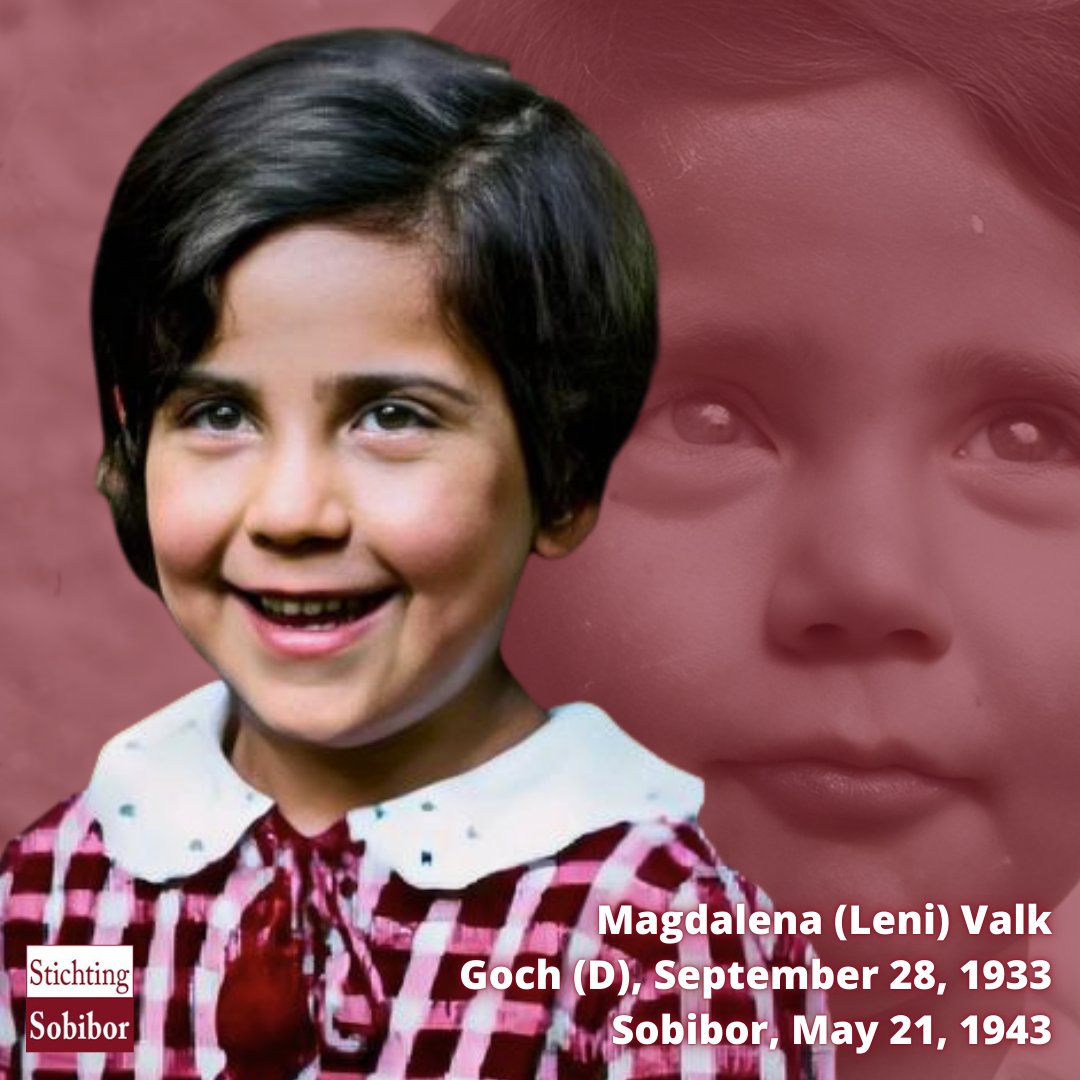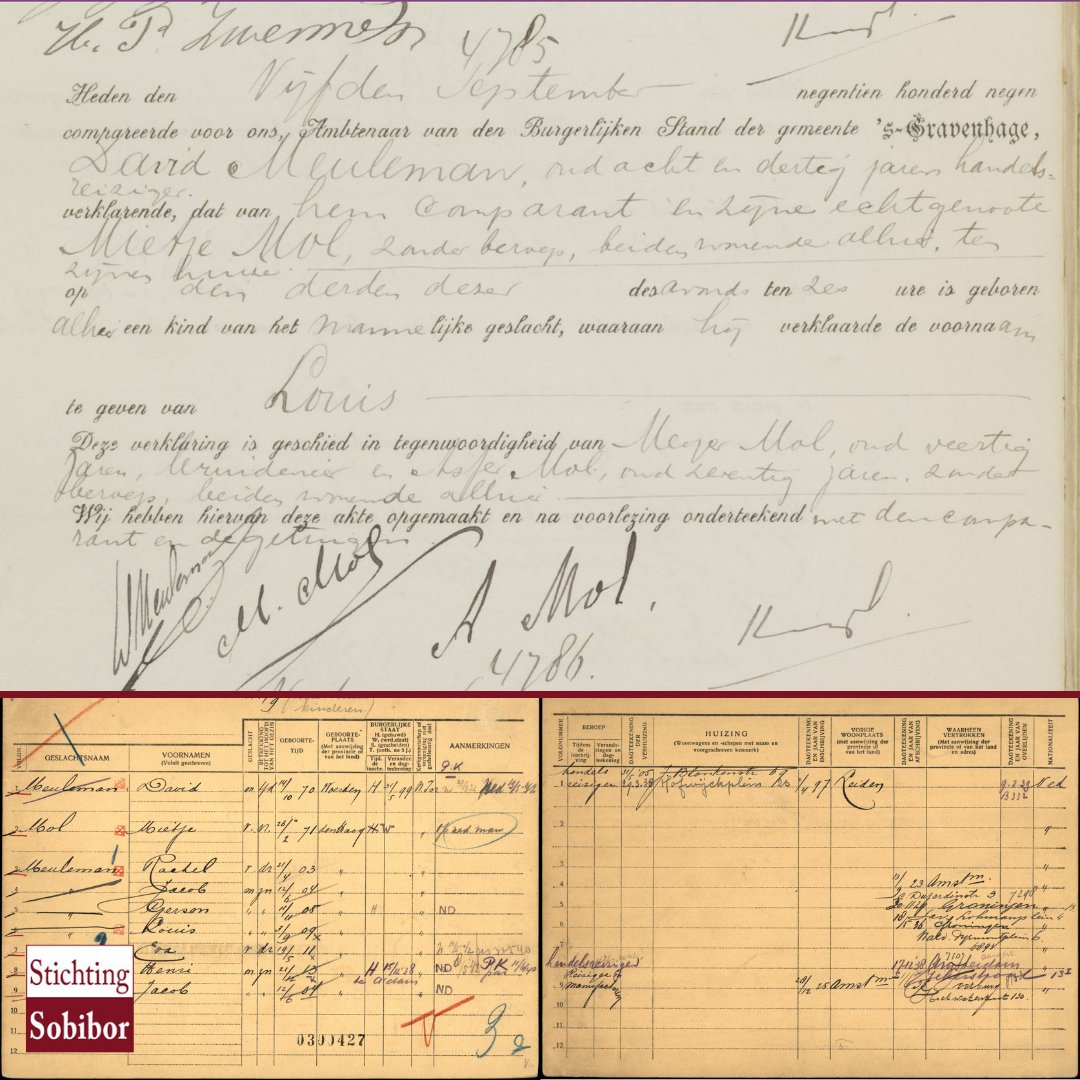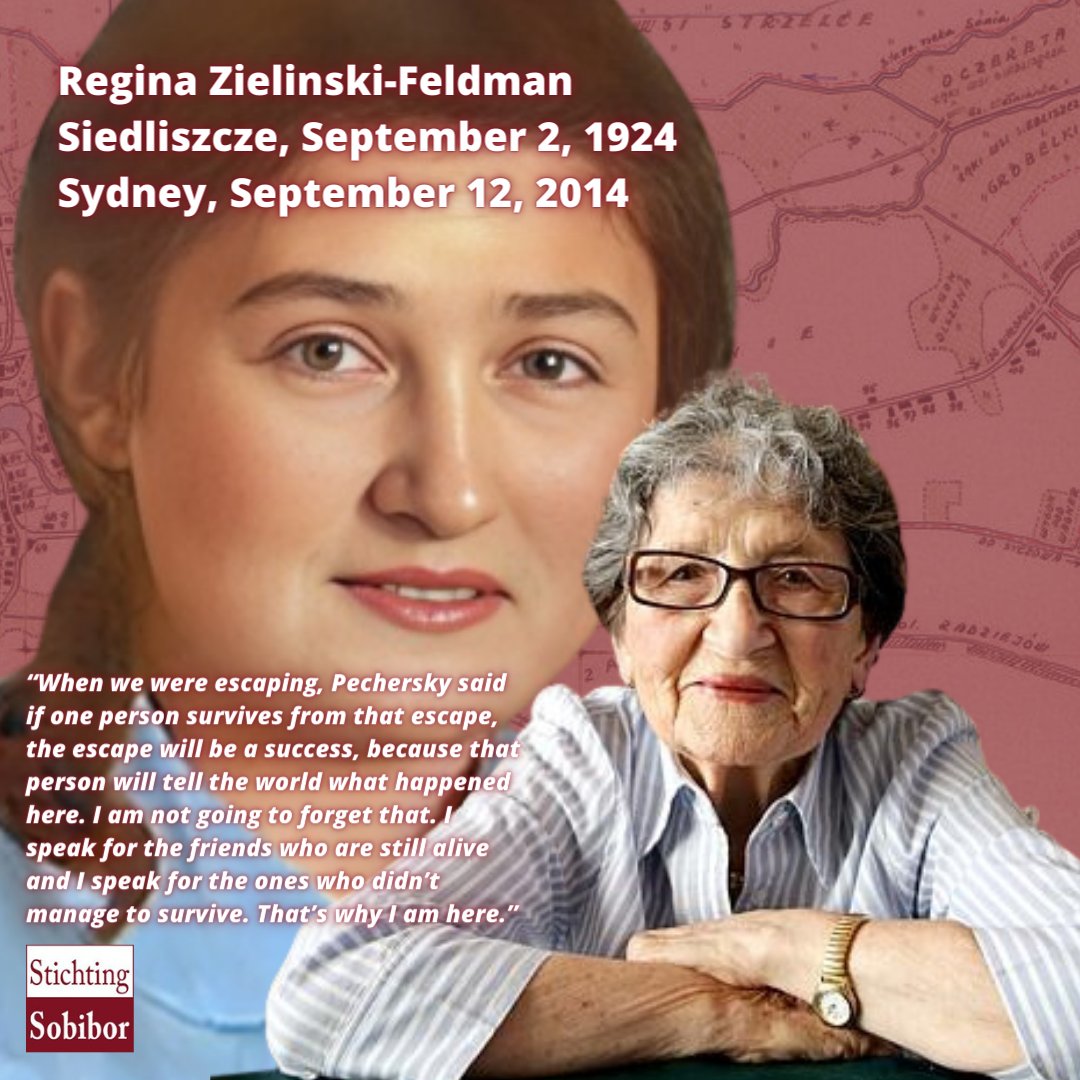04.05.1943 | Post van Leo aan zijn lieve jongens vanuit de spooktrein van @kampwesterbork naar #Sobibor: "Ik hoop het beste voor jullie ik zal moed houden en altijd aan jullie denken. Jullies vader is altijd in het hart bij jullie." #transport10 #DaglieveLeo Wie was Leo? 👇🏼/1 

Leo is een echte Maastrichtenaar en heeft 2 broers en 1 zus. Louis gaat via @Kamp_Amersfoort naar @AuschwitzMuseum. Max wordt net als Leo in #Sobibor vermoord. Tilly overleefd de oorlog, net als zijn moeder Rosalie. /2 

De alleenstaande vader Leo heeft 2 zonen uit zijn huwelijk met de niet-joodse Getrud Meuer (gesch. 1937). Hij bezit een textielzaak aan de Grote Gracht in Maastricht. Emiel woont bij de schoonfamilie van zijn zus, Slagerij Drielsma op Grote Gracht 23 en Jackie bij zijn moeder./3 

Op 25 augustus 1942 moet Leo zich, net als de bevriende Familie Isaack, vóór 16 u melden bij politie in #Maastricht en wordt hij voor de 1e maal gearresteerd en overgebracht naar Westerbork.
De Isaacks worden vandaar direct doorgestuurd naar Auschwitz en vermoord. /4
De Isaacks worden vandaar direct doorgestuurd naar Auschwitz en vermoord. /4
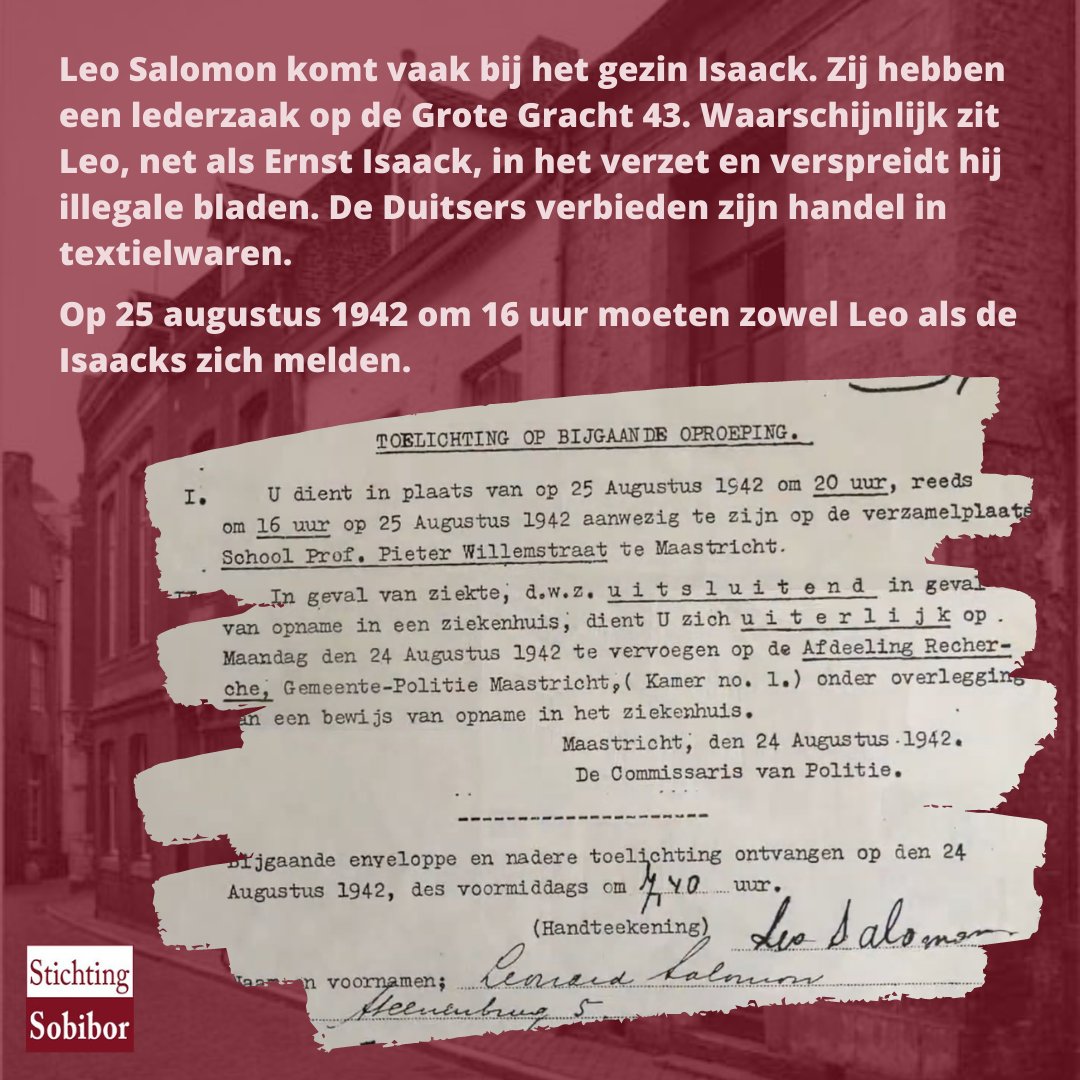
Na één week wordt Leo weer vrijgelaten vanuit @kampwesterbork vanwege de zorg voor zijn 2 zoons en keert hij huiswaarts naar #Maastricht.
Op 11 november 1942 wordt Leo voor de 2e keer gearresteerd na vermoedelijk te zijn verraden door een NSB'er. /5
Op 11 november 1942 wordt Leo voor de 2e keer gearresteerd na vermoedelijk te zijn verraden door een NSB'er. /5

Op 4 mei 1943 is Leo één van de 1187 gedeporteerden die met het 10e transport naar Sobibor gaat. Hij gooit voordat hij bij Nieuweschans Nederland verlaat, zijn laatste groet uit de trein om zijn kinderen hoop te laten houden. Hij weet waarschijnlijk beter wat zijn lot is... /6 

Op 7 mei 1943 wordt Leo Salomon direct na aankomst vermoord in vernietigingskamp #Sobibor... /7 

• • •
Missing some Tweet in this thread? You can try to
force a refresh




